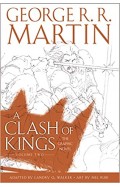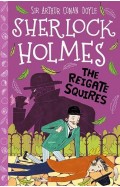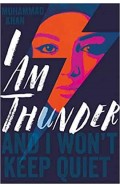- Home
- Young Adults
- Fiction
- Contemporary Fiction
- Fire and Fury: The Allied Bombing of Germany and Japan - Paperback
Fire and Fury: The Allied Bombing of Germany and Japan - Paperback
By: Randall Hansen
-
Rs 1,865.75
- Rs 2,195.00
- 15%
You save Rs 329.25.
Due to constant currency fluctuation, prices are subject to change with or without notice.
During World War II, Allied bombing obliterated every major German and Japanese city. Before the dropping of the atomic bombs, conventional bombing had killed approximately 400,000 Germans and 330,00 Japanese, the vast majority civilians. Fully 83,000 British, Commonwealth, and American airmen lost their lives, all but some 3,000 over Germany.
Two-thirds of Germans who died under the bombs did so in 1944 and 1945, and in the last year of the war cities with little military were obliterated. In Japan, American bombers destroyed all but three major Japanese cities, and the people in them, after March 1945. These raids occurred, in other words, when Allied victory was assured and when precision bombing techniques were far more advanced than they were earlier in the war.
Fire and Fury: The Allied Bombing of Germany and Japan asks why.
Based on extensive archival sources, interviews with bombing survivors, airmen, and published first-hand accounts, the book looks at the bombing campaign from an avowedly human perspective - Allied, German and Japanese. It recreates the experience of living through the death of a city. It presents the complex personalities of the senior airmen, and explores why bombing campaigns that seem so excessive seventy-five years later seemed reasonable, to many, at the time. It explains why those campaigns became so murderous so late in the war. And it asks, with the full benefits of time's fullness, whether it was all worth it.
During World War II, Allied bombing obliterated every major German and Japanese city. Before the dropping of the atomic bombs, conventional bombing had killed approximately 400,000 Germans and 330,00 Japanese, the vast majority civilians. Fully 83,000 British, Commonwealth, and American airmen lost their lives, all but some 3,000 over Germany.
Two-thirds of Germans who died under the bombs did so in 1944 and 1945, and in the last year of the war cities with little military were obliterated. In Japan, American bombers destroyed all but three major Japanese cities, and the people in them, after March 1945. These raids occurred, in other words, when Allied victory was assured and when precision bombing techniques were far more advanced than they were earlier in the war.
Fire and Fury: The Allied Bombing of Germany and Japan asks why.
Based on extensive archival sources, interviews with bombing survivors, airmen, and published first-hand accounts, the book looks at the bombing campaign from an avowedly human perspective - Allied, German and Japanese. It recreates the experience of living through the death of a city. It presents the complex personalities of the senior airmen, and explores why bombing campaigns that seem so excessive seventy-five years later seemed reasonable, to many, at the time. It explains why those campaigns became so murderous so late in the war. And it asks, with the full benefits of time's fullness, whether it was all worth it.
Fire and Fury: The Allied Bombing of Germany and Japan - Paperback
By: Randall Hansen
Rs 1,865.75 Rs 2,195.00 Ex Tax :Rs 1,865.75
Zubin Mehta: A Musical Journey (An Authorized Biography)
By: VOID - Bakhtiar K. Dadabhoy
Rs 892.50 Rs 1,050.00 Ex Tax :Rs 892.50
The Origins of Political Order From Prehuman Times to the French RevolutioN
By: Francis Fukuyama
Rs 4,045.50 Rs 4,495.00 Ex Tax :Rs 4,045.50
Manning Up: How the Rise of Women Has Turned Men into Boys
By: Kay Hymowitz
Rs 845.75 Rs 995.00 Ex Tax :Rs 845.75
The Obama Syndrome: Surrender At Home War Abroad
By: Tariq Ali
Rs 1,100.75 Rs 1,295.00 Ex Tax :Rs 1,100.75
The Quest For Meaning: Developing A Philosophy Of Pluralism
By: Tariq Ramadan
Rs 1,185.75 Rs 1,395.00 Ex Tax :Rs 1,185.75
The Pakistan US Conundrum Jihadists The Military And The People The Struggle For Control
By: Yunas Samad
Rs 1,185.75 Rs 1,395.00 Ex Tax :Rs 1,185.75
An Enemy We Created: The Myth Of The Taliban Al Qaeda Merger In Afghanistan 19702010
By: Alex Strick van Linschoten
Rs 4,197.50 Rs 8,395.00 Ex Tax :Rs 4,197.50
WikiLeaks: Inside Julian Assanges War on Secrecy
By: David Leigh & Luke Harding
Rs 637.50 Rs 850.00 Ex Tax :Rs 637.50
No similar books from this author available at the moment.
A Clash of Kings: Graphic Novel, Volume Two
By: George R.R. Martin
Rs 2,347.50 Rs 4,695.00 Ex Tax :Rs 2,347.50
Ali Baba Chaalees Chor: Bachchon Ki Alaf Laila illustrated
By: Muhammad Saleem ur Rehman
Rs 135.00 Rs 150.00 Ex Tax :Rs 135.00
Black Panther Epic Collection: Revenge of the Black Panther
By: John Byrne
Rs 7,645.75 Rs 8,995.00 Ex Tax :Rs 7,645.75
Zubin Mehta: A Musical Journey (An Authorized Biography)
By: VOID - Bakhtiar K. Dadabhoy
Rs 892.50 Rs 1,050.00 Ex Tax :Rs 892.50
Fire and Fury: The Allied Bombing of Germany and Japan - Paperback
By: Randall Hansen
Rs 1,865.75 Rs 2,195.00 Ex Tax :Rs 1,865.75












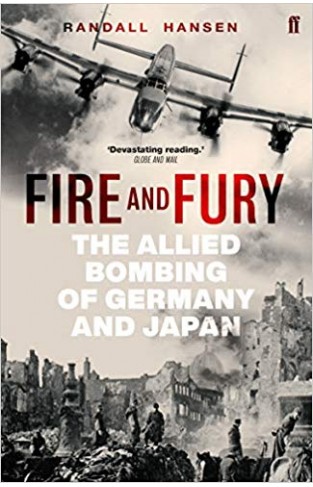
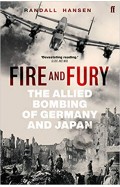
-120x187.jpg?q6)





-120x187.jpg?q6)



-120x187.jpg?q6)





